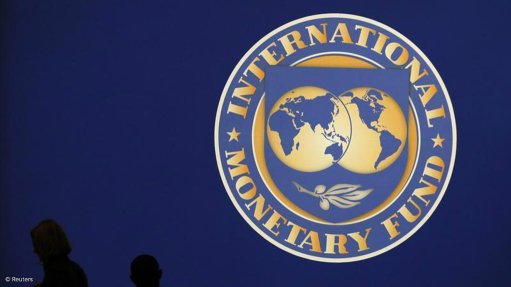The state of SA’s mining, energy and logistics sectors demands urgent reforms
The Minerals Council South Africa, whose 70 member companies and associations represent more than 90% of South African yearly mineral production by value, is at the forefront of advocating for an operating and regulatory environment that will encourage investment in prospecting, mine development and growth of the sector to create jobs and wealth for the country and all who live in it.
However, the industry faces several challenges that require immediate attention and action.
One of the most pressing issues is the rapid and unrelenting escalation of electricity tariffs. Over the past two decades, mining electricity tariffs have surged by almost 900%, placing immense pressure on the mining, processing and refining areas of the industry. These increases have consistently outpaced inflation, with yearly hikes far exceeding CPI benchmarks.
The cost of electricity has escalated to increasingly uncompetitive and damaging levels, significantly straining energy-intensive industries such as mining, smelting and other areas of the economy. This situation calls for an urgent focus on reforming the tariff-setting process and accelerating efforts to open up the electricity market to the private sector and competition in the provision of electricity.
Despite these challenges, there are positive developments in the energy sector.
The Energy Availability Factor at Eskom is trending positively and has now risen above 60%, signalling improved generation performance and reliability. Additionally, South Africa has experienced more than 100 consecutive days without loadshedding, marking a significant improvement in electricity supply stability, which is a fundamental requirement for energy intensive industries. The launch of the South African Wholesale Electricity Market is also underway, representing a radical shift in electricity trading in the country.
The mining industry is actively contributing to the energy sector’s growth, with 90 energy projects in development, amounting to 15.8 GW of electricity, according to Operation Vulindlela data. These projects are valued at over R275-billion. These projects will take pressure off Eskom so it can conduct maintenance of its power plants and grid as well as make mining a sustainable industry and put it firmly on track to meet its carbon abatement targets. It will also reduce carbon-border taxes on South Africa’s mineral exports.
However, the quality of electricity transmission infrastructure remains a concern and it will require massive capital expenditure to accommodate the burgeoning supply of renewable energy.
The Minerals Council has been at the forefront of engagements with rail and port operator Transnet to arrest the decline in services. Transnet and the Department of Transport along with the private sector have acted on the crisis, arresting the decline and implementing fundamental structural reforms that will encourage participation of the private sector on rail and at the ports.
The transport ministry in August announced that 11 successful private operators will operate 41 routes across all six Transnet corridors transporting coal, chrome, iron-ore, manganese and magnetite as well as cars and containers. An investment of R100-billion is expected to be unlocked on the rail network. The next stage is negotiations and contracting, with private sector participation on the rail network expected to start in 2026.
Transnet estimates that it will move an extra 20-million tonnes of freight next year, which is critically important for the bulk mining industry which has had to resort to road transport to export minerals.
The Minerals Council is actively engaging the Department of Mineral and Petroleum Resources on the Mineral Resources Development Bill to formulate legislation that will make South Africa globally competitive and attract investors in exploration, mine development and existing mining operations. South Africa accounts for barely one per cent of global exploration expenditure and it is critical for the long-term sustainability of the mining industry that it has a significant pipeline of resources.
By championing South Africa’s mining industry for investment, growth and sustainability, the Minerals Council can ensure the sector’s long-term success for the benefit of all stakeholders.
Article Enquiry
Email Article
Save Article
Feedback
To advertise email advertising@creamermedia.co.za or click here
Announcements
What's On
Subscribe to improve your user experience...
Option 1 (equivalent of R125 a month):
Receive a weekly copy of Creamer Media's Engineering News & Mining Weekly magazine
(print copy for those in South Africa and e-magazine for those outside of South Africa)
Receive daily email newsletters
Access to full search results
Access archive of magazine back copies
Access to Projects in Progress
Access to ONE Research Report of your choice in PDF format
Option 2 (equivalent of R375 a month):
All benefits from Option 1
PLUS
Access to Creamer Media's Research Channel Africa for ALL Research Reports, in PDF format, on various industrial and mining sectors
including Electricity; Water; Energy Transition; Hydrogen; Roads, Rail and Ports; Coal; Gold; Platinum; Battery Metals; etc.
Already a subscriber?
Forgotten your password?
Receive weekly copy of Creamer Media's Engineering News & Mining Weekly magazine (print copy for those in South Africa and e-magazine for those outside of South Africa)
➕
Recieve daily email newsletters
➕
Access to full search results
➕
Access archive of magazine back copies
➕
Access to Projects in Progress
➕
Access to ONE Research Report of your choice in PDF format
RESEARCH CHANNEL AFRICA
R4500 (equivalent of R375 a month)
SUBSCRIBEAll benefits from Option 1
➕
Access to Creamer Media's Research Channel Africa for ALL Research Reports on various industrial and mining sectors, in PDF format, including on:
Electricity
➕
Water
➕
Energy Transition
➕
Hydrogen
➕
Roads, Rail and Ports
➕
Coal
➕
Gold
➕
Platinum
➕
Battery Metals
➕
etc.
Receive all benefits from Option 1 or Option 2 delivered to numerous people at your company
➕
Multiple User names and Passwords for simultaneous log-ins
➕
Intranet integration access to all in your organisation




















